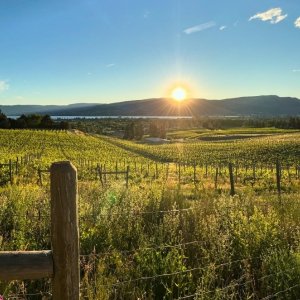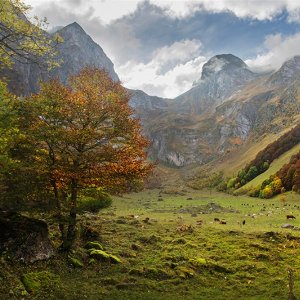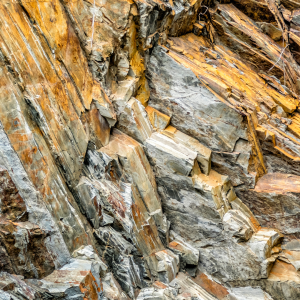In the heart of Sierra de Tramontana mountain range, in Mallorca, lies Escorca, a municipality of only 210 inhabitants. However, it is far from being an empty place, as more than a million tourists pass through it every year.
They come to visit the Lluc sanctuary, to get to know the culture of the town, to enjoy its idyllic beaches and, above all, to do sport in a beautiful natural environment. Mountain hiking, cycling, climbing, bird watching... these are all popular activities in the area.
But not everything is so idyllic in the Sierra de Tramontana, as this environment is not exempt from environmental challenges. As Antoni Solivellas, mayor of the municipality, tells us, one of the most pressing problems is the uncontrolled proliferation of wild goats.
In the past, the farmers kept them at bay and the goats were only up in the mountains. But the goat population has grown exponentially and now they are coming down into the valley. They are a plague. We are fighting to see if we can recover the traditions that were done before to control them.
Goats destroy all the vegetation, both in people's gardens and in the natural environment. For example, a study by the Consellería de Medio Ambiente, Agricultura y Pesca de Mallorca has revealed that 68% of the yew trees in the Serra de Tramuntana are destroyed by these animals.

Another environmental objective of the Escorca Town Council is the protection of centuries-old olive trees in the Cala Tuent valley. They protect the plots where they are located with fences, remove the pine trees and introduce animals such as donkeys to clear the land.
The difficulty lies in the fact that all these actions have a significant economic cost. But the town council of Escorca came up with an idea: to take advantage of nature sports in the area to promote conservation. For the past two years, they have managed to allocate part of the proceeds from sports races and other activities to the recovery of the area.
As Solivellas explains, we ask for the collaboration of the participants. The registration fee covers insurance and all the expenses of the race, and normally an extra euro is donated to an environmental project. In a race, 500 people participate, and with the money we raise we can enclose one of the plots of land.
In the end, this is a fair exchange. Visitors who come to the destination attracted by its scenery and sporting facilities, enjoy an environment that is very expensive to manage and, in this way, help to preserve it. In addition, sometimes the race course passes through private land and the owners give it up without any problem. For this reason, the town council believes that it is important that there is a return to the territory.
For example, we want to promote agricultural activity, which is what keeps forest areas at bay and prevents fires, said the mayor.
Anyone can take part in the activities, as long as there are places, because for environmental reasons they are limited. When the race announcements are published, the town council shares them on its social networks and explains what the contribution will be used for.
Solivellas is now celebrating the present, but its sights are set on the future:
We set up the Naturesport brand to generate income to help environmental issues and now we are starting to see a small return. We want to boost this income in the coming years; we are considering creating a foundation to manage all of this. It's a complicated combination that has taken us years, but we are now getting it on track and it's starting to pay off.
In recognition of its sustainability efforts, including the success story we explore in this article, Escorca has been awarded Biosphere Destination certification. This example shows how tourism, when properly managed, can have a positive impact on a territory, becoming a source of support and conservation. Escorca's vision for the future is promising, with the hope that more such initiatives can inspire sustainable change in other regions of the world.













